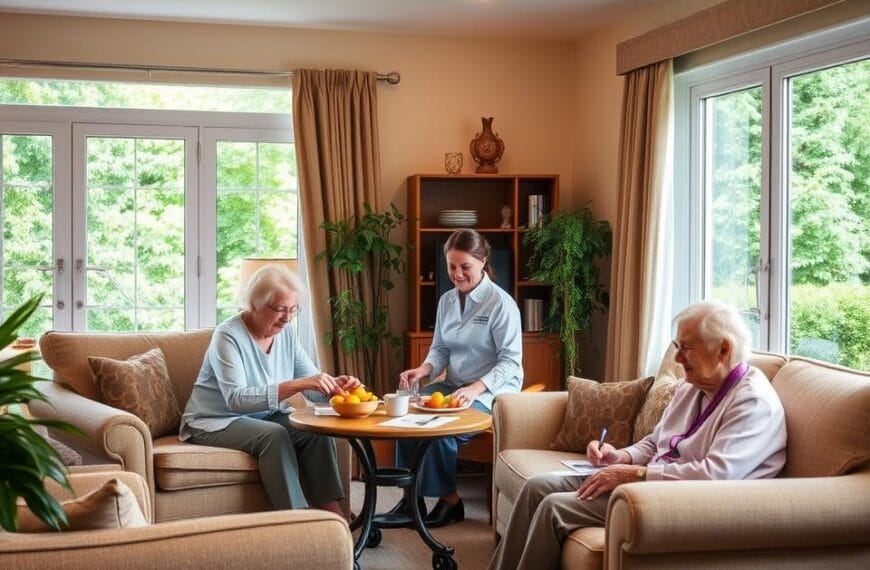In the tapestry of human experience, few threads are as vibrant and essential as the connections we forge with others. Picture this: a warm summer evening, the air filled with laughter and the gentle clinking of glasses as friends gather for a backyard barbecue. The atmosphere is electric with joy, each person basking in the glow of companionship. This scene isn’t just a pleasant snapshot of social life; it’s a powerful illustration of how social engagement can transform our emotional landscape, painting our days with brighter hues of happiness and well-being.
In today’s fast-paced world, where the demands of modern life often leave us feeling stretched thin and isolated, the importance of nurturing our social bonds has never been more crucial. As we navigate through seas of stress and islands of loneliness, social engagement emerges as a lighthouse, guiding us towards shores of emotional fulfillment and overall health. It’s not merely a luxury or a pleasant distraction; research increasingly shows that meaningful social connections are fundamental to our well-being, capable of improving our emotional health, boosting our physical resilience, and even extending the length and quality of our lives.
The Alchemy of Connection: How Social Engagement Transforms Emotional Health
At its core, social engagement is a form of alchemy, turning the base metals of our daily experiences into gold. This transformation is not magic, but a scientifically observed phenomenon that has profound implications for our emotional well-being.
Enhancing Emotional Well-being: The Ripple Effect of Positive Interactions
Dr. Sarah Lee, a prominent psychologist specializing in social cognition, explains, “Every positive social interaction, no matter how small, creates a ripple effect in our emotional state. These ripples combine to form waves of well-being that can carry us through life’s challenges.” Her research has shown that individuals who engage in regular, meaningful social interactions experience lower levels of stress hormones like cortisol and higher levels of mood-boosting neurotransmitters such as serotonin and oxytocin.
Consider the story of Michael, a 45-year-old accountant who found himself drowning in work-related stress. His turning point came when he joined a local hiking group. “At first, I was hesitant,” Michael recalls. “But after a few weekends of trekking through nature and sharing stories around campfires, I noticed a significant change. My stress levels dropped, and I started looking forward to each day with renewed enthusiasm.” Michael’s experience is a testament to the power of social engagement in reshaping our emotional landscape.
Strengthening Social Support Networks: Building Bridges of Resilience
The strength of our social support networks acts as a buffer against life’s inevitable storms. These networks, comprised of friends, family, and community members, provide more than just companionship; they offer a safety net of emotional support, practical assistance, and shared wisdom.
Dr. Elena Rodriguez, a sociologist studying community resilience, notes, “Strong social networks are like emotional shock absorbers. They help distribute the impact of life’s challenges, preventing any single individual from bearing the full brunt of adversity.” Her studies have shown that individuals with robust social connections are more likely to bounce back from setbacks, maintain a positive outlook, and navigate life transitions with greater ease.
Combating Loneliness and Isolation: Breaking the Silence
In an age where digital connections often substitute for face-to-face interactions, loneliness and social isolation have emerged as silent epidemics, particularly among older adults and those living in urban areas. The consequences of prolonged loneliness are far-reaching, impacting not just emotional health but also physical well-being and cognitive function.
James, a 68-year-old retiree, found himself slipping into isolation after the loss of his wife. “The silence in the house was deafening,” he shares. “I didn’t realize how much I was withdrawing until my daughter insisted I join a local seniors’ club.” This simple step marked the beginning of a profound transformation for James. “Suddenly, I had reasons to get up and out every day. The conversations, the shared activities – they brought color back into my world.”
Promoting Positive Emotions: The Contagion of Joy
One of the most immediate and palpable effects of social engagement is the surge of positive emotions it generates. Laughter shared with friends, the warmth of a heartfelt conversation, the sense of belonging that comes from being part of a community – these experiences are more than just momentary pleasures. They accumulate over time, building a reservoir of positivity that can sustain us through challenging times.
Dr. Lee’s research has shown that positive emotions experienced during social interactions have a “contagion effect,” spreading not just between individuals in the moment but also carrying forward into other aspects of life. “People who regularly engage in positive social interactions tend to approach other areas of their lives with more optimism and resilience,” she explains.
Supporting Mental Resilience: Forging Armor for the Mind
In the face of life’s inevitable challenges, social engagement acts as a forge, helping to create mental armor that protects us against stress, anxiety, and depression. This resilience is not about avoiding difficulties but about developing the strength and flexibility to face them head-on.
Sarah, a 35-year-old teacher, credits her tight-knit group of friends with helping her navigate a particularly difficult year. “When I was going through my divorce, my friends were my lifeline,” she recalls. “They listened without judgment, offered practical help when I needed it, and most importantly, reminded me of my own strength when I forgot.” Sarah’s experience underscores how social connections can provide both emotional support and tangible assistance during times of need.
Strategies for Enhancing Emotional Well-being through Social Engagement
Understanding the power of social engagement is just the first step. The real magic happens when we actively incorporate strategies to enhance our social connections into our daily lives. Here are some practical approaches to cultivating a richer social life and, by extension, a more fulfilling emotional existence:
1. Find Your Tribe: The Power of Shared Interests
In the vast sea of humanity, finding “your people” can feel like searching for a needle in a haystack. Yet, shared interests and passions can serve as powerful magnets, drawing like-minded individuals together. Local clubs, organizations, and hobby groups offer fertile ground for cultivating meaningful connections.
Maria, a 50-year-old artist, found her tribe in an unexpected place. “I’ve always been passionate about gardening, but I never thought it would lead to such deep friendships,” she shares. “Joining a community garden project connected me with people from all walks of life who shared my love for nurturing things. We started with conversations about soil pH and ended up supporting each other through life’s ups and downs.”
2. Foster Genuine Relationships: Quality Over Quantity
In the age of social media, where “friend” counts can number in the thousands, it’s easy to lose sight of the importance of deep, genuine connections. Dr. Rodriguez emphasizes the quality of relationships over quantity. “It’s not about how many acquaintances you have, but about cultivating a core group of relationships characterized by trust, mutual support, and genuine care,” she explains.
Investing time and effort in nurturing these connections pays dividends in emotional well-being. Regular check-ins, deep conversations that go beyond surface-level small talk, and being there for one another during both joyous and challenging times are the hallmarks of these genuine relationships.
3. Practice Active Listening and Empathy: The Art of Being Present
In a world of constant distractions, the ability to be fully present in our interactions with others has become a rare and precious skill. Active listening and empathy form the foundation of strong social connections.
Dr. Lee offers practical advice: “When engaging with others, put away your devices, make eye contact, and truly focus on what they’re saying. Ask follow-up questions that show you’re engaged and care about their perspective.” This level of attention not only strengthens your connections but also enriches your own emotional experience of the interaction.
4. Volunteer and Give Back: Finding Fulfillment in Service
Engaging in volunteer work offers a unique blend of benefits. It not only allows us to contribute positively to our communities but also provides opportunities for meaningful social interactions and a sense of purpose.
John, a 60-year-old retiree, found new purpose and social connections through volunteering at a local animal shelter. “After retiring, I felt a bit lost,” he admits. “But working at the shelter, I’ve met incredible people who share my love for animals. The sense of camaraderie and the feeling that we’re making a difference together – it’s incredibly fulfilling.”
5. Use Technology Wisely: Bridging Distances, Not Creating Them
While technology can sometimes contribute to feelings of isolation, when used mindfully, it can be a powerful tool for maintaining and even deepening social connections. Video calls, social media platforms, and messaging apps can help us stay connected with loved ones across distances.
However, Dr. Rodriguez cautions, “Digital connections should complement, not replace, in-person interactions. Use technology to maintain relationships and bridge gaps, but prioritize face-to-face meetings when possible for deeper engagement.”
6. Engage in Shared Activities: Creating Memories Together
Participating in shared activities not only provides enjoyment but also strengthens social bonds through shared experiences. Whether it’s joining a sports team, taking an art class, or participating in a book club, shared activities create a context for deeper connections to form.
Lisa, a 40-year-old marketing executive, found unexpected joy in a weekly salsa dancing class. “It started as a way to get some exercise, but it’s become so much more,” she shares. “The laughter, the shared struggles as we learn new steps, the celebrations when we nail a routine – it’s created a bond with my classmates that extends beyond the dance floor.”
7. Seek Professional Support: Navigating Challenges with Guidance
For those struggling with emotional well-being or finding it challenging to form social connections, seeking professional support can be a crucial step. Mental health professionals can provide tailored strategies and support for overcoming barriers to social engagement.
Conclusion: Embracing the Social Symphony of Life
As we reflect on the profound impact of social engagement on our emotional well-being, it becomes clear that our connections with others are not just nice-to-have additions to our lives; they are essential threads in the fabric of our happiness and health.
Dr. Lee offers a final thought: “Think of your social life as a symphony. Each interaction, each relationship, contributes its unique note. When harmonized, these notes create a beautiful melody that enriches every aspect of your life.”
In a world that often celebrates individual achievement and self-reliance, it’s crucial to remember the power of connection. By prioritizing social engagement – whether through deepening existing relationships, forging new connections, or contributing to our communities – we open ourselves to a richer, more fulfilling emotional life.
So, take that step. Reach out to an old friend, join that club you’ve been curious about, or simply strike up a conversation with a neighbor. Each interaction, no matter how small, has the potential to ripple outward, creating waves of positivity that can transform not just your life, but the lives of those around you.
In the end, the power of social engagement reminds us of a fundamental truth: we are not islands, but part of a vast, interconnected human tapestry. By weaving strong, meaningful connections into this tapestry, we create not just healthier, happier lives for ourselves, but a more vibrant, resilient community for all.





